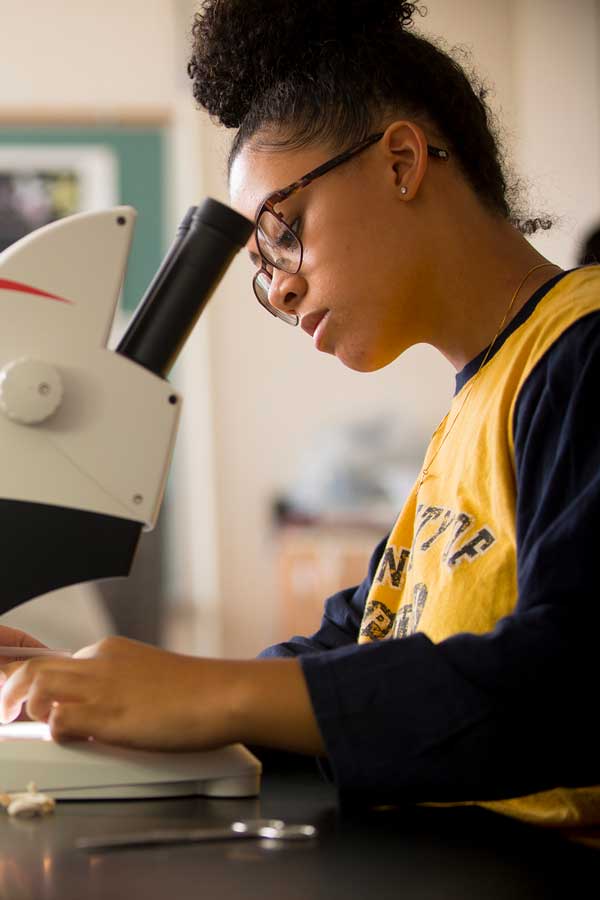
Pre-Optometry
You can help care for people’s eyes and make sure they see properly.
Why study pre-optometry at Pitt-Bradford?
U.S. News & World Report ranked optometrists 49th on the list of 100 Best Jobs in 2019.
If you want to be an optometrist, you’ll need to take many prerequisite courses that optometry schools require. We will work closely with you to make sure you have taken the appropriate courses. We also provide many opportunities for you to complete the other highly recommended activities that the optometry schools are looking for, such as undergraduate research and optometrist shadowing.
What will I learn?
You’ll get a solid foundation in the biological sciences, physical sciences, and behavioral sciences, so you will do well on the OAT exam that many optometry schools require.
What can I do with a degree in pre-optometry?
The undergraduate research and optometrist shadowing experiences will help you become a strong candidate in today’s competitive optometry school application process.
Employers:
- Eye care clinics
- Biomedical research labs
- Optometry schools
Featured Courses
-
BIOL 1310
Animal PhysiologyThis course provides an introduction to animal structure and function. Basic mechanisms of physiology related to major systems will be covered, including neurobiology, endocrinology, movement, circulation, gas exchange, digestion, and ionic and osmotic balance. The course will use a comparative approach that emphasizes how physiological differences among species have evolved based upon the need for the animal to adapt to the environment. Three hours of lecture per week. Prerequisites BIOL 0101 and 0102. -
BIOL 1306
NeurobiologyThe biology of nervous systems will be studied at various levels, including the cellular and molecular biology of neurons, sensory systems, motor control, and higher cortical functions in humans. All topics are viewed across phyla and from an evolutionary perspective. The course will emphasize scientific reading and oral communication of scientific material. Three hours of lecture and four hours of lab per week.